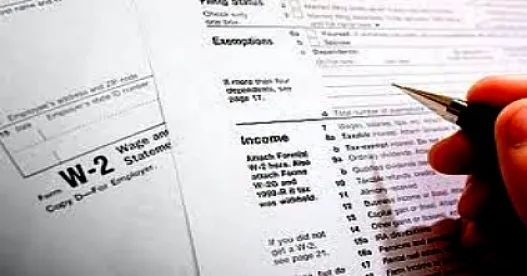One of the hallmarks of the Obama Board was an effort to rebalance the landscape in its interpretation and application of the Act, through decisions and rulemaking, to create an environment in which unions were better able to organize and had a greater chance of prevailing in representation elections. Through a series of actions in the past several months, the Board, with its first Republican majority in close to a decade, has sought to reverse that pattern and return to prior long-standing precedents.
The most significant developments occurred in a flurry of decisions preceding the conclusion of the term of outgoing Board Chairman Miscimarra on December 16, 2017, through which the Board has signaled a return to traditional and well-established Board law in representation matters and the rejection of decisions favoring union organizing efforts under the Obama Board, and the potential for rulemaking to undo some or all of the Board’s 2014 Amended Representation Election Rules, considered by most observers to be an effort to make it easier for unions to win elections.
No More Micro-Units
On December 15, 2017, in a 3-2 split decision along party lines, the Board overturned the Obama Board’s “micro unit” decision in Specialty Healthcare & Rehabilitation Center of Mobile, 357 NLRB 934 (2011). In Specialty Healthcare, the Board had adopted new standards for determining whether it would conduct elections among small groups of employees, i.e., micro-units, when employers challenged such units as inappropriate because they excluded other employees with whom the petitioned-for employees shared a community of interest under the Board’s long-standing tests, by placing the burden on employers to prove that employees they wanted to include in the petitioned-for unit shared an “overwhelming community of interest” with the union’s proposed bargaining unit. Essentially, unions were able to cherry-pick small groups of employees to get a foothold in the door of larger employers that were traditionally harder to organize under established Board law.
In PCC Structurals, Inc., 365 NLRB No. 160 (2017), the Board rejected Specialty Healthcare’s “overwhelming community-of-interest” test and “clarified the correct standard for determining whether a proposed bargaining unit constitutes an appropriate unit for collective bargaining when the employer contends that the smallest appropriate unit must include additional employees … the Board will no longer be constrained by the extraordinary deference that Specialty Healthcare affords to the petitioned-for unit.” Rather, the Board announced in PCC Structurals that it would return to its traditional community-of-interest analysis and discard the “overwhelming community-of-interest” test. While the Board remanded PCC Structurals to the Region for further action, it did not address what would be done in the many pending cases across the country in which these same issues had been raised.
One week after the PCC Structurals decision, the General Counsel’s office issued Memorandum OM-18-05 (Dec. 22, 2017) in which it concluded that the change in Board law was so “unusual” and/or “extraordinary” that it warranted reconsideration of the propriety of any bargaining unit defined under a Stipulated or Consent Election Agreement or a Decision and Direction of Election (“DDE”) in a currently active case. As such, Regional Directors and employers can now argue that open representation cases decided under Specialty Healthcare should be reconsidered. Employers should carefully consider whether, in light of the Board’s PCC Structurals decision, the Board should reopen the record to hear additional evidence bearing on the appropriate bargaining unit to include additional employees. Employers should be prepared to submit to the Region an offer of proof regarding community-of-interest factors that would lead to a different bargaining unit than that set forth in the Election Agreement or DDE. This is expected to materially slow down the numerous cases in these categories.
Are the Ambush Election Rules on the Way Out?
The newly constituted Board also took direct aim at the Obama Board’s 2014 Amended Election Rules, commonly referred to as the “ambush election rules.” Employers and Republican Board members vigorously objected to these rules, which heavily favored unions by shortening the time that employers had to prepare for a representation hearing and cutting in half the time between the filing of a petition and an election, and materially changing procedures and the parties’ rights to litigate important questions before a vote, all of which severely limited the ability of employers to campaign against union representation.
On December 12, 2017, the Board published a Request for Information seeking comments on whether the 2014 election rules should be retained as is, kept with modifications, or rescinded entirely. The Board was clear to note, however, that while it may engage in administrative rule-making to amend these rules, it may also retain them. The two Democratic Board members dissented. On January 26, 2018, the NLRB extended the time for interested parties to file responses to the Request for Information, from February 12, 2018, to March 19, 2018. The Request for Information, coupled with earlier dissents by Republican members of the Obama Board, signals that the Trump Board is looking to dismantle all or some of the more onerous and one-sided election rules and regulations.
Additional Representation Changes
As further evidence of the erosion of Obama-era precedent, the new Board has withdrawn the former General Counsel’s position on whether certain graduate students and student athletes qualify as “employees” under the Act, as well as whether faculty at religious universities teaching secular subjects would be able to organize and otherwise be protected under the Act.
The Board will also seek to review a tactic long used by unions opposing efforts to decertify a union by filing frivolous unfair labor practice charges in order to block a decertification election, the so-called “blocking charge” rule. Former Board Chairman Miscimarra, while sitting on the Obama Board, was a vocal critic of the Board’s blocking charge rule.
Beyond standing alone, the importance of these decisions cannot be overstated as a clear indication that once the Board returns to a Republican majority, none of the Obama-era precedent is safe.




 />i
/>i

